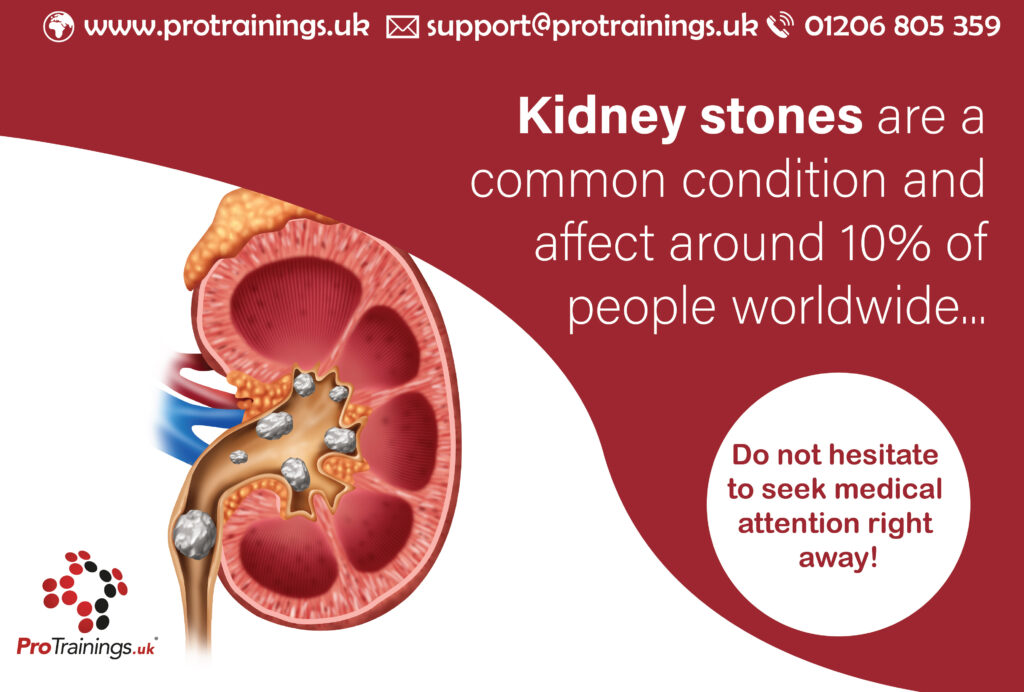Kidney stones are small, hard deposits that form in the kidneys and can cause severe pain when they pass through the urinary tract. They can be incredibly painful and may require medical intervention to manage. Kidney stones are a common condition and affect around 10% of people worldwide.
- Severe pain in the side and back, below the ribs
- Pain that radiates to the lower abdomen and groin
- Painful urination
- Nausea and vomiting
- Urine that is cloudy or smells bad
- Blood in the urine
If you experience any of these symptoms, it is important to seek medical attention immediately. Your doctor may perform a physical examination, blood tests, and imaging tests such as a CT scan or ultrasound to diagnose the condition.
There are several medical treatments available for kidney stones, depending on the size and location of the stones. In some cases, patients may be able to pass the stones naturally through urination, with the help of pain medication and plenty of fluids. For larger stones or stones that are causing severe pain, your doctor may recommend a procedure to remove or break up the stones, such as shock wave lithotripsy, ureteroscopy, or percutaneous nephrolithotomy.
While medical treatment is essential for managing kidney stones, there are also some first aid measures that can help to ease the pain and discomfort associated with the condition. These include:
- Drinking plenty of water and other fluids to help flush out the stones
- Taking over-the-counter pain medication, such as ibuprofen or acetaminophen
- Applying heat to the affected area to help relieve pain and muscle spasms
- Using a strainer to catch any stones that pass through the urinary tract, which can help your doctor to determine the cause of the stones and prevent future occurrences.
In conclusion, kidney stones can be a painful and uncomfortable condition, but prompt medical attention and proper treatment can help to manage the symptoms and prevent complications. If you experience any signs or symptoms of kidney stones, do not hesitate to seek medical attention right away.
